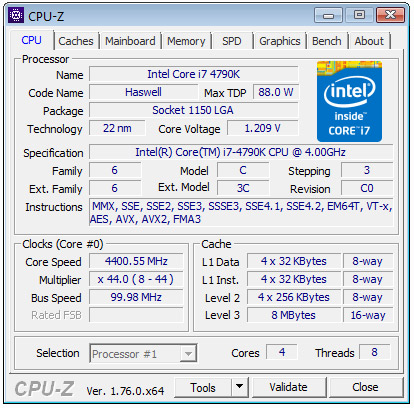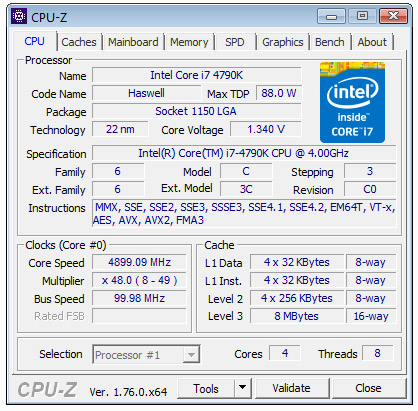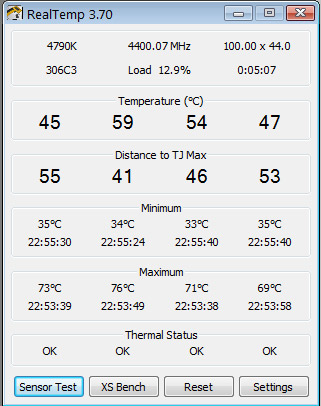CPU Overclocking is almost like a highly infectious disease nowadays, and I suffered from it for a brief period of time, and recovered from it before crossing the extreme levels of insanity. Oh yes, I said it, yes, there is much debate in regard to Overclocking a CPU on every tech forums, and it will go on for ages. There will be a debate on overclocking even if we are likely to have a 10 GHz processor in future. The debate would be about the advantages and disadvantages of water cooling the processor and running it at 10.4 Ghz, seriously?
What is overclocking?
The process of increasing a component’s clock rate, eventually to make it run at a higher speed than it was originally designed or intended to run, which is usually done with CPU or GPU, so that the CPU or GPU perform more operations per second. Well lets see how fast an overclocked CPU will perform. But remember, overclocking produces a lot of heat, and you must have an excellent cooler to protect your CPU from being fried, you also need to consider the ambient room temperature, a factor that directly impacts the performance of your CPU cooler. Ok, that being said let’s dive into the obvious question.
Overclocking a CPU, is it worth it?
Many will say that you won’t get a direct answer, or there are over thousand answers for it. But in the end it boils down to one thing, personal preference. In my case, as I said, I caught wind of it and got carried away. Here is my experience on overclocking a CPU and how much of performance I really gained out of it. First I will brief out the hardware, apps used and experiments done with overclocking.
Hardware Used:
- Cabinet Corsair 750D Airflow edition
- MSI Z97 PCMate
- i7-4790k
- Seidon 120V liquid cooler
- Corsair DDR3 16GB Ram
- Nvidia GeForce GT630 2GB DDR3
- SSD – Samsung 850 Evo 500GB.
Apps used – Intel XTU, CPU-Z, Realtemp, 3ds max and Crysis 2
Experiments – 3d Rendering and Crysis 2 Gameplay FPS.
The board I own is MSI Z97 pcmate, which has settings for overclocking in the bios, and I used Intel Xtreme Tuning Utility as well, and my CPU i7-4790k is an unlocked processor that runs at 4GHz base clock, and 4.4GHz Turbo Boost Mode, and you can still overclock it with an excellent cooler, as this CPU will turbo boost as long as thermal headroom is available. The graphics card that I have is a basic level gaming card which gives 45-50 fps with graphics settings set to extreme at the resolution of 1024×768 pixels in Crysis 2, and with Ultra settings, frame rates drop below 30 and becomes choppy.
3d rendering with and without overclocking.
That’s a whole 11 seconds saved there, which is pretty amazing if I am using a space ship capable of warp speed and I had to attend the Siggraph conference held at the Lunar base on the Moon in next 10 seconds.
The CPU temperature was increasing almost every 10 seconds and reached 76 degree C, without a proper cooling solution, either CPU performance will throttle down or shutdown to protect from permanent damage, in some cases CPU will be fried and done. You can see from the above image the minimum and maximum temperature at the time of overclocking. And the temperature( bold numbers ) of CPU without overclock settings, but at full load, running at 4.4 Ghz. All temperatures were recorded when the ambient room temperature is at 27 degree C.
Crysis 2 Gameplay and FPS, with and without overclocking.
The frame rates of a game depends mostly on GPU performance, mine is a basic gaming card and tested it at different settings. Without CPU overclocking, I didn’t overclock GPU here, and the game resolution at 1024×768 pixels at Extreme settings, I got 47 FPS, and a pretty smooth game play. After Overclocking the CPU, again GPU isn’t overclocked, and with same settings I achieved 55 FPS, but I didn’t see any difference between 47 and 55. But with faster CPU’s and Graphics hardware achieving good frame rate is easier without overclocking, and it is really a waste of time in terms of tuning your CPU and keeping it stable, you will almost feel like walking along a rope suspended 500m above the ground without any safety equipment. Sometimes you could see your heart dancing on the keyboard when system shuts down in an instant and refuses to boot, and you desperately attempt to reset the bios. I went through it.
Many would say that game play below 60 FPS is not good or not visually pleasing, but 30 FPS is good enough, with faster CPU’s and responsive hardware you won’t see lag in anything, unless you want to dodge a bullet like Neo, where you need higher frame rates to visualize the speeding bullet and shock waves produced by it. Overclocking also draws more power and in turn heats the CPU faster. Unless you have a fat wallet and 50+ CPU’s to roast, fry or bake them as your part time hobby, Overclocking is insanity.


